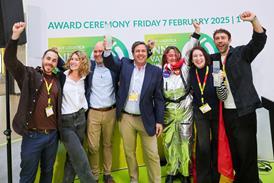FDACS approves citrus greening treatment
By Carl Collen2023-08-29T14:03:00

Invaio achieves first registration for Trecise technology, which is designed to suppress citrus greening in oranges
You have now reached your article limit
Already a registered user or member? SIGN IN HERE
To continue reading, register today for free access Register now
Five reasons to register today

- Access selection of articles from our industry-leading magazines
- Regular newsletters to keep you on top of key developments
- Bookmark and retrieve your favourite articles
- Comment on stories and share your opinions
- Find out about special publications and events
Already a registered user or member? SIGN IN HERE
- Refund policy
- Disclaimer
- Terms and conditions
- Privacy policy
- Cookies policy
- © 2003-2024 Fruitnet
Site powered by Webvision Cloud


